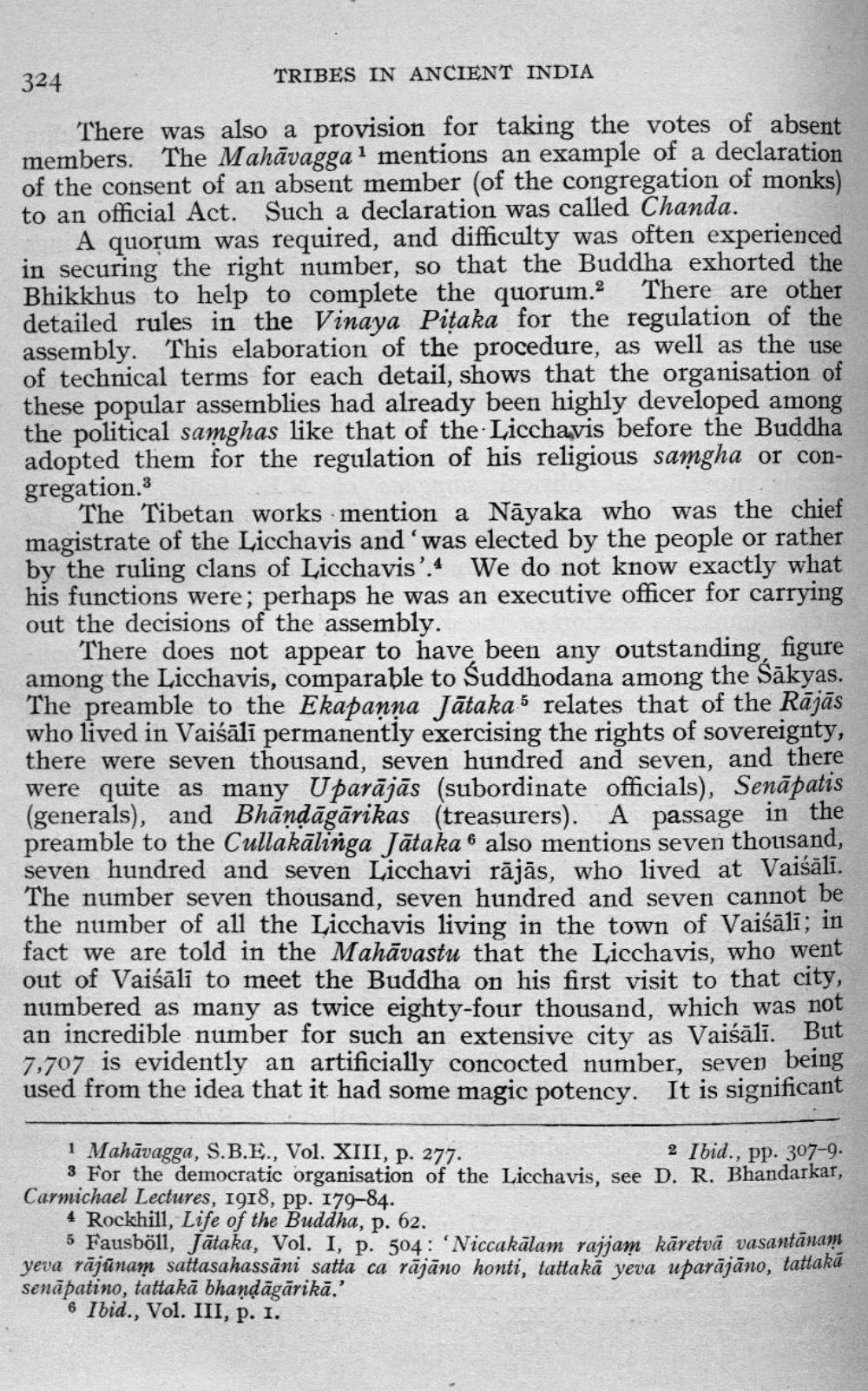________________
324
TRIBES IN ANCIENT INDIA There was also a provision for taking the votes of absent members. The Mahāvaggal mentions an example of a declaration of the consent of an absent member (of the congregation of monks) to an official Act. Such a declaration was called Chanda.
A quorum was required, and difficulty was often experienced in securing the right number, so that the Buddha exhorted the Bhikkhus to help to complete the quorum. There are other detailed rules in the Vinaya Pitaka for the regulation of the assembly. This elaboration of the procedure, as well as the use of technical terms for each detail, shows that the organisation of these popular assemblies had already been highly developed among the political samghas like that of the Licchavis before the Buddha adopted them for the regulation of his religious samgha or congregation.
The Tibetan works - mention a Nāyaka who was the chief magistrate of the Licchavis and 'was elected by the people or rather by the ruling clans of Licchavis'. We do not know exactly what his functions were; perhaps he was an executive officer for carrying out the decisions of the assembly.
There does not appear to have been any outstanding, figure among the Licchavis, comparable to Suddhodana among the Sākyas. The preamble to the Ekapanna Jātaka 5 relates that of the Rājās who lived in Vaiśālī permanently exercising the rights of sovereignty, there were seven thousand, seven hundred and seven, and there were quite as many Uparājās (subordinate officials), Senāpatis (generals), and Bhāndāgārikas (treasurers). A passage in the preamble to the Cullakālinga Jātaka 6 also mentions seven thousand, seven hundred and seven Licchavi rājās, who lived at Vaisāli. The number seven thousand, seven hundred and seven cannot be the number of all the Licchavis living in the town of Vaiśāli; in fact we are told in the Mahāvastu that the Licchavis, who went out of Vaiśāli to meet the Buddha on his first visit to that city, numbered as many as twice eighty-four thousand, which was not an incredible number for such an extensive city as Vaiśāli. But 7,707 is evidently an artificially concocted number, seven being used from the idea that it had some magic potency. It is significant
1 Mahāvagga, S.B.E., Vol. XIII, p. 277.
2 Ibid., pp. 307-9. 3 For the democratic organisation of the Licchavis, see D. R. Bhandarkar, Carmichael Lectures, 1918, pp. 179-84.
4 Rockhill, Life of the Buddha, p. 62.
5 Fausböll, Jātaka, Vol. I, p. 504: 'Niccakālam rajjam kāretvā vasantānam yeva rājūnam sattasahassāni satta ca rājāno honti, tattakā yeva uparājāno, tattaka senāpatino, tattakā bhandāgārikā.'
6 Ibid., Vol. III, p. I.




